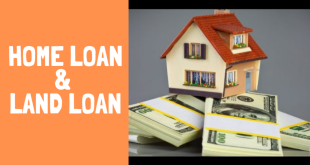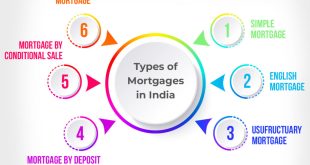A mortgage is a magical pass to homeownership that has become a necessary step for a great number of people. You may wonder, though, just what a mortgage is. Let’s dissect it, then!
A Mortgage: what is it?
A mortgage is, in essence, a loan that you obtain in order to purchase real estate. It is similar to taking out a bank loan with the property acting as security. The loan will be repaid in installments, often over a 25–30 year period.Your credit score, your income, and the value of the property you’re purchasing all play a part in determining the loan amount and interest rate you pay. Therefore, your chances of getting better mortgage conditions increase with both your income and credit score.

What is the Process For Obtaining a Mortgage in NZ?
In Aotearoa, New Zealand, there are two ways to obtain a mortgage: either directly from a bank or through a mortgage broker. Both of these solutions have advantages and disadvantages, but the procedure is essentially the same.
1. Have a discussion with your lender.
Tell your potential lenders you are prepared to apply for a mortgage during your initial conversation with them. They’ll probably inquire about your personal finances and spending plan in order to obtain a better idea of how much you’ll be able to borrow. These discussions have to be non-binding so that you can look about for the best lender.
2. Collect your payment.
Get your deposit organized if it’s coming from multiple sources, especially if you plan to apply for the Kāinga Ora First Home Grant. Know exactly how much money you have in total.
3. Obtain prior authorization
Obtaining a pre-approval for a mortgage can show you how much you can borrow. Discuss the requirements with the lender of your choice; in general, they will be:
4. Looking for a home and applying for a mortgage
You can now take your house search seriously since you have your finances under control. Many resources are available to assist you in finding your ideal house.The timing of your formal mortgage application will depend on the manner of sale once you’ve located the home.
5. Establish a mortgage framework
Discuss the ideal mortgage structure with your lender. How your loan is structured may affect how much interest you pay over the course of the loan as well as how soon you are able to pay it back.
An Explanation of Interest Rates
To put it simply, an interest rate is the cost of borrowing money. You will be required to pay interest on the loan amount if you take one out. The interest rate determines how much extra you will have to pay back over the course of the loan and is indicated as a percentage of the loan amount.Over time, a number of factors, including inflation, economic growth, and governmental regulations, can affect interest rates.
Which Kinds of Mortgage Rates Exist?
Interest can be classified as either fixed or variable, which means that they can either remain constant for a predetermined amount of time or change over time. Variable rates are subject to change dependent on the state of the market, whereas fixed rates are predictable and stable.
How Much Can I Get a Mortgage for?
When lenders determine how much you can borrow, they take a lot of things into account.Generally, you are allowed to borrow five times your gross annual income to buy an owner-occupied property. To make sure you can repay the loan over the course of 30 years and at a higher interest rate than you are agreeing to, lenders will perform a number of checks. In order to prevent you from overcommitting, these higher “test rates” take into consideration any future rises to these prices.
In New Zealand, How much is Required as a Deposit?
A few variables, such as the cost of the house you’re purchasing and the lender you’re using, can affect how much you need for a down payment.The majority of lenders in New Zealand typically demand a housing deposit equal to at least 20% of the buying price.
Limits on Loan-to-value Ratios
The amount of your house loan divided by the purchase price of the property is known as the loan-to-value ratio, or LVR. For instance, your LVR is 80% if you wish to purchase a $500,000 house and you have a $400,000 home loan.The RBNZ first imposed LVR limits in 2013 in reaction to the sharp increase in home prices that coincided with a rise in low-deposit loans. The housing market and price inflation were almost immediately halted by the LVR policy.The LVR regulations are continuously revised by the RBNZ in order to maintain the stability of the housing market.
What is the Duration Required to Pay off a Mortgage?
In actuality, there’s no universally applicable answer to the question of how long it takes to pay off a mortgage.Although the duration of most mortgages is thirty years, you don’t have to take that long to pay it off. To pay off their mortgage faster, many homeowners decide to refinance or make additional payments. You can pay off a mortgage in as short as 15 years if you have discipline and a little extra income flow.
A Mix of Fixed and Flexible
A loan can be divided into fixed and floating terms. This allows you to have some freedom in making additional repayments on the floating part, as well as some certainty with the fixed part.Additionally, you have the option to divide your set rate into various terms of length. This implies that if the rates have gone up since you fixed, you won’t be experiencing an abrupt hike on all of your repayments.

Mortgage Loan Arrangements
Table lending
The most typical kind of home loan is a table loan. Typically, the maximum period is 30 years. The interest rate might be fixed, variable, or a combination of both.
Credit That Revolves
Similar to large overdrafts, revolving credit loans allow you to make payments or withdrawals up to the loan’s maximum whenever it’s convenient for you. Because interest is computed on a daily basis, you can lower the overall interest you pay by minimizing the loan amount.
Reverse loan
Typically, interest is charged on the entire borrowed balance. Any savings accounts and regular accounts you link to your offset loan lower the interest you pay upon it. For instance, you would only pay interest on $275,000 if you had a $300,000 loan and $25,000 in savings.The more money you leave in your account, the less interest you will pay, much like with a revolving credit line. Interest is computed daily.
Rates for First-Time Home Buyer Loans
If you’re thinking about getting a house loan right now, the table below shows you some of the first-time home buyer-only 2-year fixed-rate loans that are accessible in our database (some may have links to the websites of the lenders). The firm name is listed alphabetically in this table after the Star Rating, which is arranged from highest to lowest. The displayed products are $500K principle and interest home loans offered in Auckland. Check in advance with your lender and review the relevant loan papers before committing to a specific home loan package to make sure the conditions fit your demands and ability to repay the loan. To browse a larger selection of home loan products, use Canstar’s home loan selector. Canstar might get paid for recommendations.
Average Repayments on Home Loans
But interest rates have grown more sharply over the past year, while average mortgages have only slightly increased. The average one-year fixed rate in Canstar’s database at the end of November 2022 was 6.13%; this year, it was 7.5%.When these numbers are entered into Canstar’s home loan repayment calculator, it becomes evident that more adjustments to interest rates and/or home prices are required in order to increase housing affordability. Because although the average mortgage has increased by 2%, these mortgages now have 15% higher repayments.Hopefully, however, interest rates will begin to decline over the course of the upcoming year.
Lowering the Loan
Reducing loans is unusual in New Zealand; payments are large at first but get lower over time.


